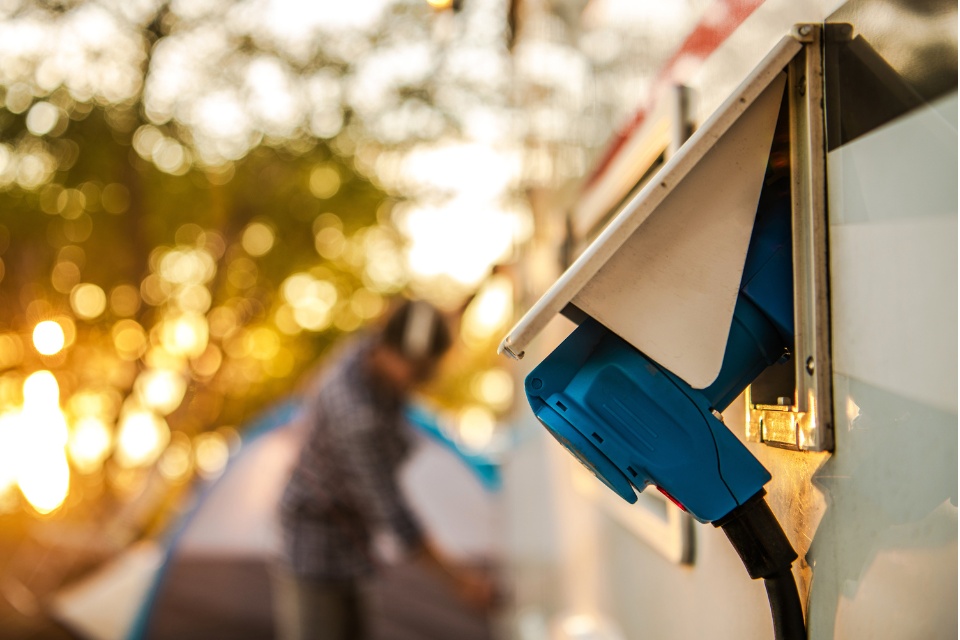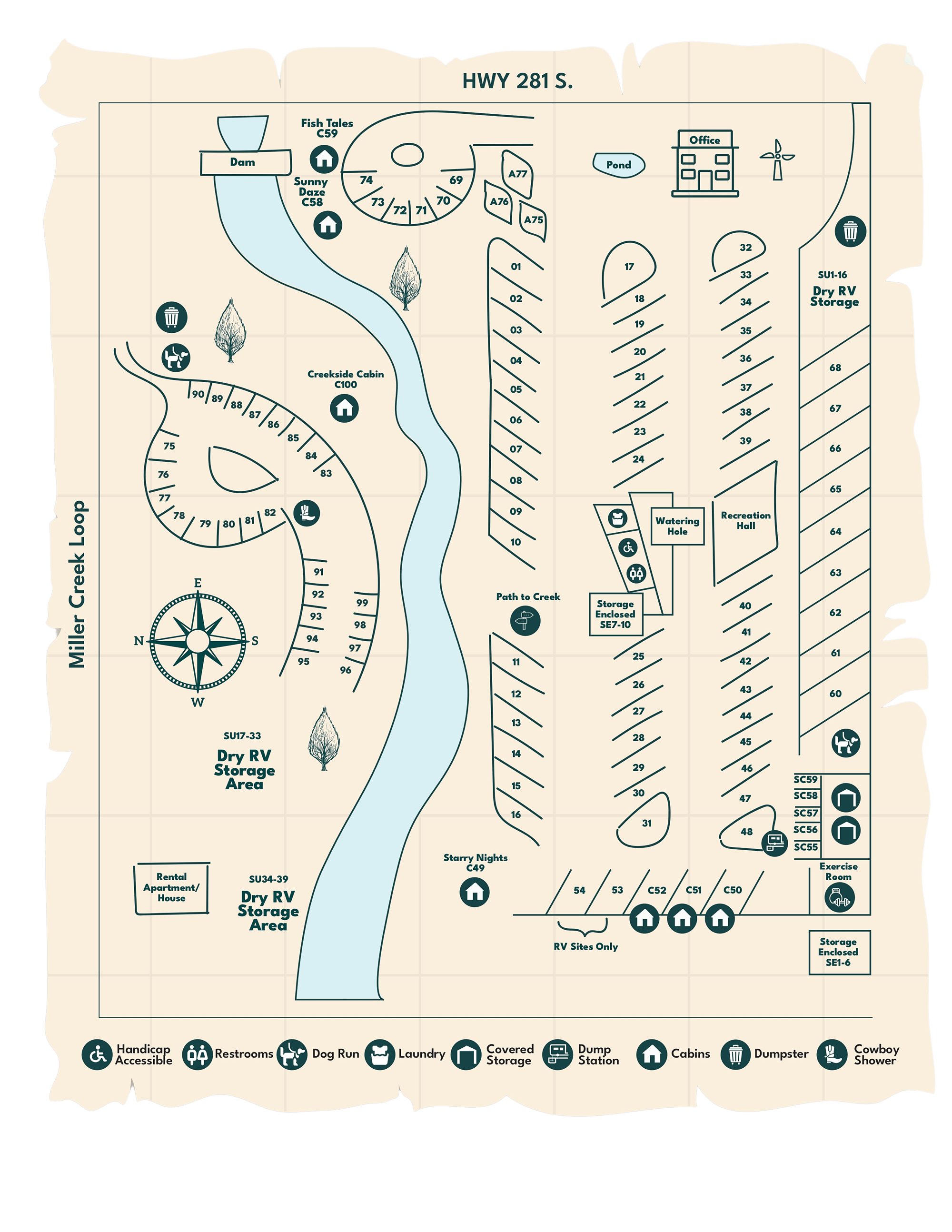For many newcomers to the world of RVing, figuring out campground hookups can be a bit of a learning curve. At RV campgrounds, hookups are essential facilities that allow you to connect your RV to electricity, water, and sewer systems, ensuring that all your home comforts are readily available. In this guide, we’ll explore the different types of hookups available at RV campgrounds and provide tips for safe and efficient connections. We’ll also delve into the specifics of electrical hookups, particularly the differences between 30-amp and 50-amp services, helping you choose the right one for your RV to avoid electrical issues.
Types of Hookups at RV Campgrounds
Electrical Hookups
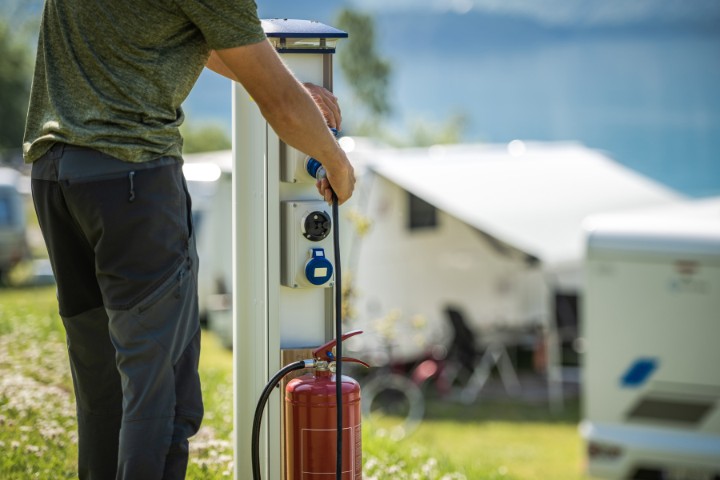
Electrical hookups are crucial for powering the interior and exterior of your RV, including appliances, lighting, and air conditioning. Campgrounds typically offer two main types of electrical connections:
- 30-Amp Hookups: These are suitable for smaller RVs and provide enough power for basic appliances and lighting.
- 50-Amp Hookups: Designed for larger RVs, these hookups accommodate multiple appliances running simultaneously and are ideal for RVs equipped with amenities like multiple air conditioners.
Water Hookups
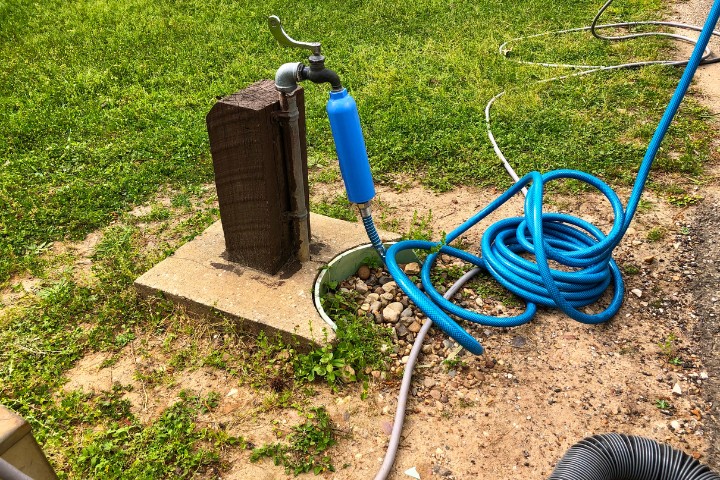
Water hookups provide a direct connection to the campground’s water supply, allowing you to use your RV’s plumbing fixtures. These hookups enable a continuous supply of water for cooking, cleaning, and bathing, without relying on the RV’s freshwater holding tank.
Sewer Hookups
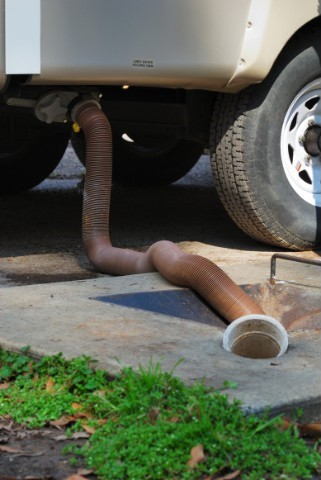
Sewer hookups allow for direct drainage of waste from the RV into the campground’s sewage system. This convenience means you don’t have to use portable waste containers or drive to a dump station.
Using RV Hookups Safely and Efficiently
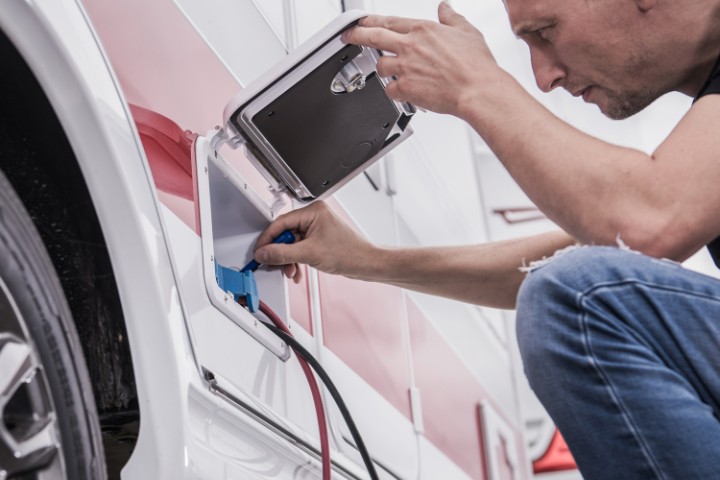
Connecting to Electrical Hookups
- Inspect the Hookup: Before connecting, inspect the campground’s electrical outlet for any visible damage or wear. If you notice any issues, report them to the campground management before use.
- Use a Surge Protector: A surge protector is crucial to protect your RV’s electrical system from potential surges in the campground’s power supply.
- Check the Voltage: Use a voltage meter to check the hookup’s voltage level before connecting your RV. This step is essential to ensure the voltage is within a safe range for your RV.
Connecting to Water Hookups
- Use a Drinking Safe Hose: Always use a hose certified for potable water to avoid contaminants.
- Regulate Pressure: Water pressure at campgrounds can vary. To prevent damage to your RV’s plumbing, use a water pressure regulator.
Connecting to Sewer Hookups
- Secure Connections: Ensure all connections are secure to prevent leaks. Use high-quality, flexible sewer hoses designed for RV use.
- Wear Gloves: Always wear gloves when handling sewer hoses to maintain hygiene and safety.
Choosing the Right Electrical Connection for Your RV
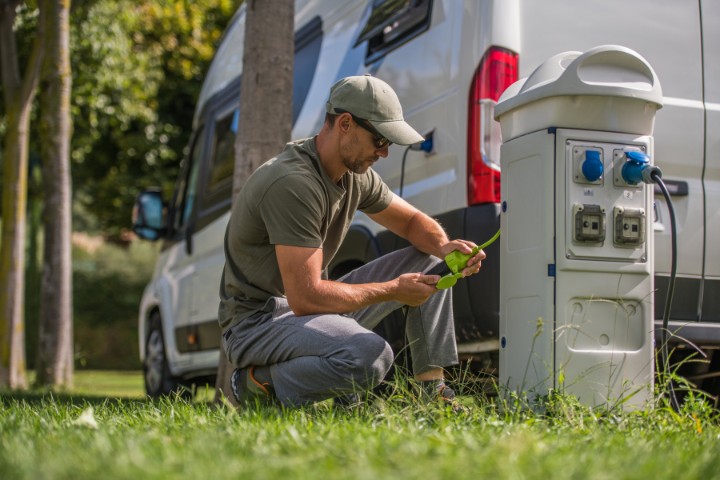
Understanding 30-Amp vs. 50-Amp
- 30-Amp Service: Typically provides up to 3,600 watts of power. It has three prongs and is adequate for most small to medium-sized RVs.
- 50-Amp Service: Offers up to 12,000 watts, making it suitable for larger RVs with high-energy demands. It features four prongs.
Choosing the Correct Amperage
- Assess Your RV’s Requirements: Check your RV’s manual to understand its power requirements. Knowing whether your RV is set up for 30-amp or 50-amp service is crucial.
- Consider Your Appliance Usage: If you plan to run multiple high-wattage appliances simultaneously, opt for a 50-amp hookup. For lighter use, a 30-amp hookup might suffice.
Miller Creek RV Park: Your Ideal RV Hookup Destination

For those planning an RV trip near Fredericksburg, Texas, Miller Creek RV Park offers top-notch facilities, including reliable 30-amp and 50-amp electrical hookups, water, and sewer connections. Miller Creek RV Park is just a short drive away from everything, so it’s the perfect base to explore the Texas Hill Country. Plan your stay at Miller Creek RV Park to experience the ultimate in convenience and comfort while enjoying the best of Texas RV camping.

